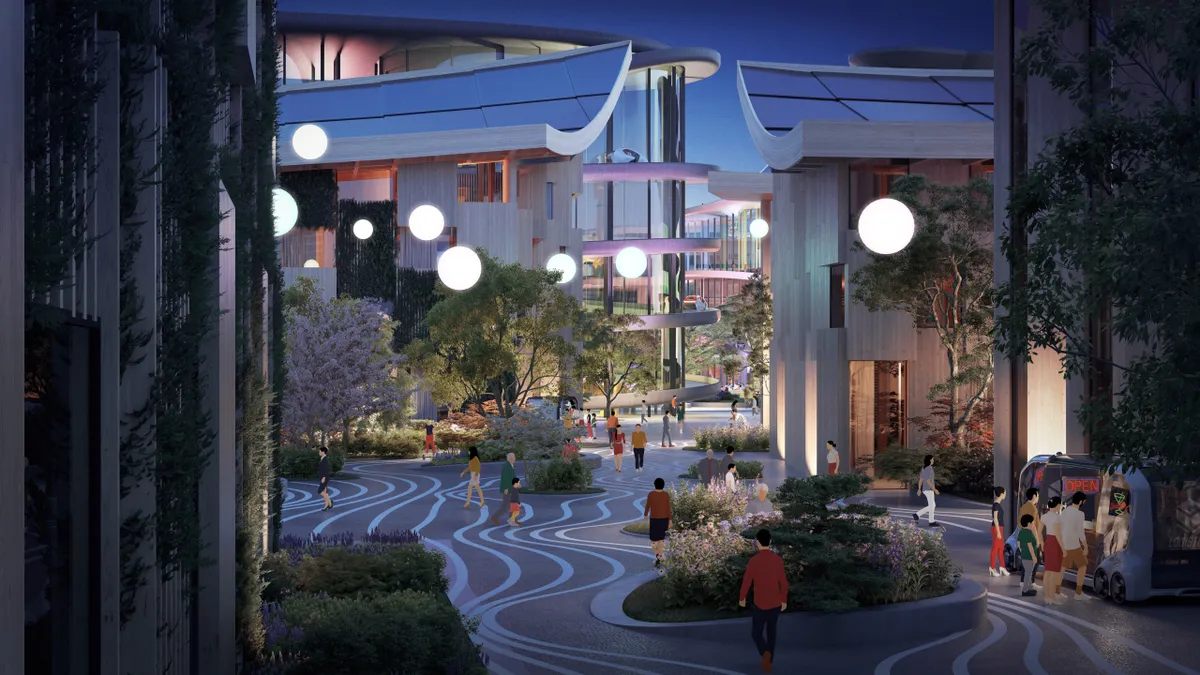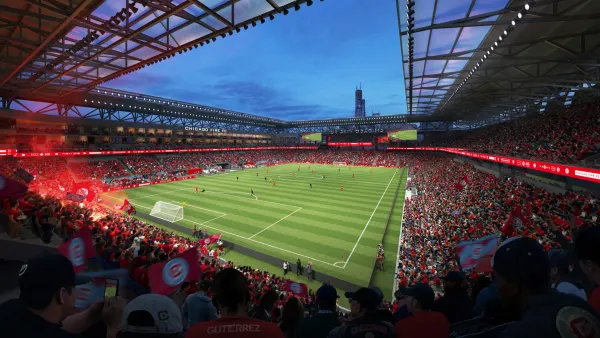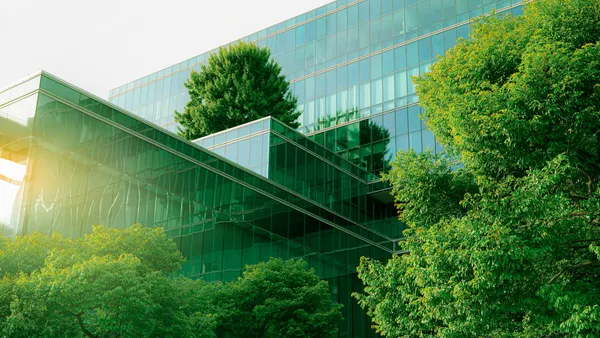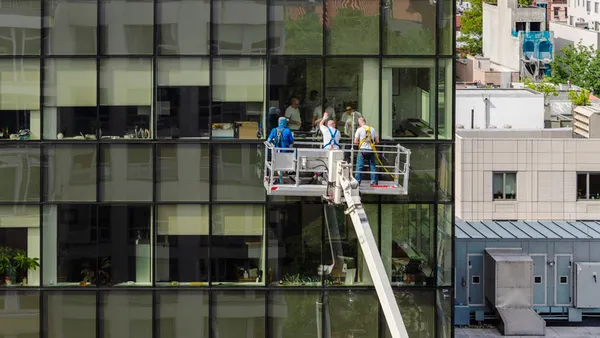UPDATED, Feb. 24, 2021: Toyota's Woven City project officially broke ground this week, following a kickoff ceremony featuring Toyota President Akio Toyoda, Woven Planet CEO James Kuffner, Gov. Heita Kawatatsu of Shizuoka Prefecture and others, Cities Today reports.
Oct. 19, 2020: In a high-profile presentation at CES 2020, Toyota announced plans to convert an old factory site in Japan into a prototype "city of the future." The 175-acre Woven City project, to sit at the base of Mt. Fuji, would house some 2,000 residents and will be outfitted with connected infrastructure, clean buildings and artificial intelligence (AI).
The January announcement was highly touted as a way to test new technologies in a real-life city environment, akin to Alphabet spinoff Sidewalk Labs' former plans for a connected development in Toronto. During a CES session to unveil the Woven City plans, Toyota Motor Corp. President Akio Toyoda, who jokingly compared himself to Willy Wonka, outlined a 2021 groundbreaking.
"You do know that’s only a year away, right?," Toyoda asked Danish architect Bjarke Ingels, whose firm Bjarke Ingels Group (BIG) is a partner on the project. "Ok ... well get going!"
But since then, little has been revealed about the project. In March, Toyota announced a memorandum of understanding with NTT Corporation to partner on a smart cities platform for Woven City and other projects, and has opened a call for partners through a dedicated Woven City website. Otherwise, Toyota spokesman Brian Lyons said there have been "no changes to the plan" and that the COVID-19 pandemic has not impacted the schedule.
Now, observers are watching closely for any news about the project, which could offer valuable insights about how the smart cities of the future could function — and how residents will live in them.
There have been models of testing grounds for connected infrastructure or vehicles and other various technologies, as seen with the University of Michigan’s MCity or Curiosity Lab at Peachtree Corners, GA. But Woven City — named in tribute to Toyota’s history as a loom manufacturer — would go even further, building smart technology into every aspect of life.
The plans call for Toyota’s autonomous e-Palette vehicles, which can be scaled and customized for different services, to be used for transportation and deliveries; retail services; mobile offices and emergency response.
"It’s exciting that Toyota recognizes that to have truly autonomous vehicles, they have to be connected to everything,” said Karen Lightman, executive director of the Metro21: Smart Cities Institute at Carnegie Mellon University (CMU). "It means data being shared across sectors, with everything talking to everything."
"But it’s not just technology," Lightman added. “It’s a space where humans live, and trust will be an important factor.”
The plans also note that infrastructure will be built with sustainable materials and powered by solar panels and hydrogen fuel cells. Meanwhile, the homes will have sensor-based artificial intelligence (AI) and robotics that can "check occupants’ health, take care of basic needs and enhance daily life," according to a Toyota press release.
The sheer scope of AI and data collection in Toyota's plan has attracted a good deal of attention; everyone from city planners to retailers could learn from how residents respond to Woven City’s personalization.
"This will put a data-first mindset and a focus on the user experience into every facet of daily life," said Kevin Almeida, vice president of marketing services for the California-based ad firm Creative Digital Agency. "We’re going to get some really meaningful information about what people think about the shopping experience in terms of automation, data, a personalized user experience."
Still, similar projects have failed to get off the ground. Bosch Group’s proposal to build a smart community with FivePoint Holdings in San Francisco’s Hunters Point neighborhood was put on hold after toxic pollution was found at the site. And Bill Gates announced plans in 2017 to build a smart city on 24,000 acres in Arizona, but little else has publicly emerged about the project.
Sidewalk Labs had plans to develop a 12-acre mixed-use development in Toronto — arguably the most buzzworthy "smart city" plan in recent years — to showcase everything from mass timber buildings to adaptive pavement that would accommodate all forms of mobility. However, the project was dogged with concerns about how the company would store and protect data collected from residents.
In May, just a few months into the COVID-19 pandemic, Sidewalk Labs announced that it was dropping the project due to "unprecedented economic uncertainty."
Observers say Toyota could break through, as it owns the planned site and has fewer regulatory requirements to navigate. The planned bottom-up approach, as opposed to plastering sensors and driverless cars on an existing neighborhood, could also reduce friction, sources say.
Whether or not Toyota's Woven City plan is successful, CMU’s Lightman said it will be crucial to continually deploy large-scale test projects to both vet technology and make sure residents are comfortable with it. CMU, in partnership with three other universities, is planning its own smart city test sites under the Engineering Research Center on Autonomous susTainabLe urbAn Systems (ATLAS) project. Those sites, Lightman said, would bring a similar Woven City model to American cities, where residents and regulators may have different concerns.
"We know autonomy is coming and, in many ways, is already here. This is a chance to make sure it’s done in a way that’s fair and equitable,” Lightman said. “Companies can’t forget about the human element and the human desire for agency … this can help us design technology that brings in the shared vision, a world that is autonomous, livable and sustainable.”










